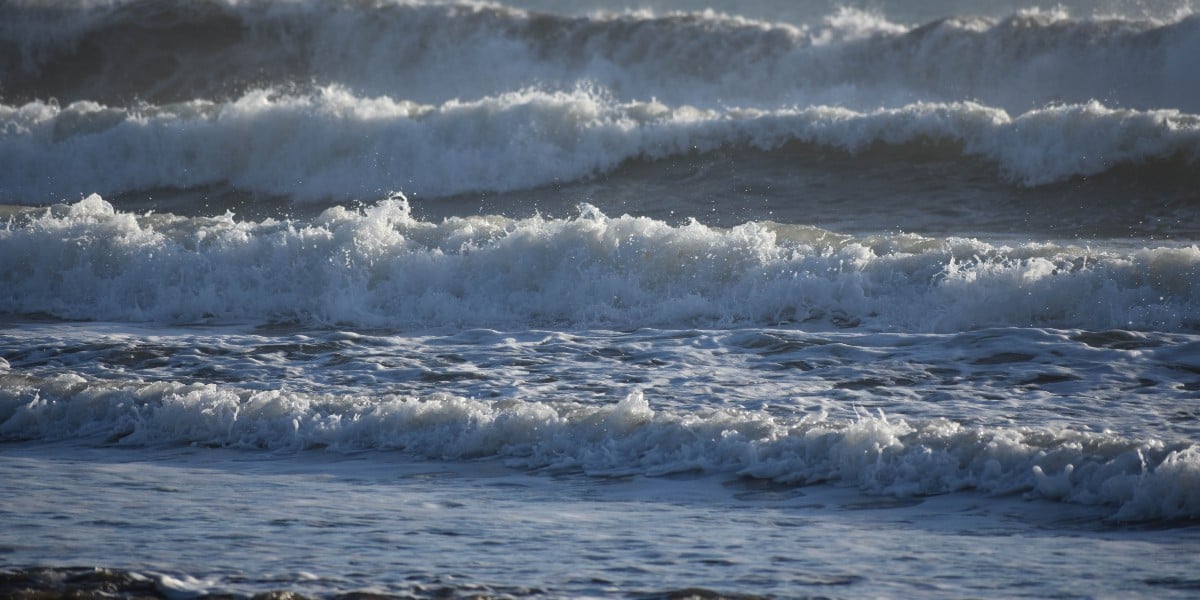Pope Leo XIV – Inaugural Mass Homily
Elected on May 8, 2025, as the 267th successor of St. Peter, Pope Leo XIV’...

St. John Chrysostom was fearless in his proclaimation of the Gospel despite the jealousy and hatred directed at him by the supposedly Christian Empress and Imperial Court of Constantinople around AD 400. In the face of government threats he proclaims “If Christ is with me, whom shall I fear?” His faithfulness cost him dearly — he was sentenced to an exile so severe that it eventually cost him his life. The following is read on September 13, his feast day.
The waters have risen and severe storms are upon us, but we do not fear drowning, for we stand firmly upon a rock. Let the sea rage, it cannot break the rock. Let the waves rise, they cannot sink the boat of Jesus.
What are we to fear? Death? Life to me means Christ, and death is gain. Exile? ‘The earth and its fullness belong to the Lord [see Psalm 24]. The confiscation of goods? We brought nothing into this world, and we shall surely take nothing from it.
I have only contempt for the world’s threats, I find its blessings laughable. I have no fear of poverty, no desire for wealth. I am not afraid of death nor do I long to live, except for your good. I concentrate therefore on the present situation, and I urge you, my friends, to have confidence.
Do you not hear the Lord saying: Where two or three are gathered in my name, there am I in their midst? Will he be absent, then, when so many people united in love are gathered together? I have his promise; I am surely not going to rely on my own strength! I have what he has written; that is my staff, my security, my peaceful harbor. Let the world be in upheaval. I hold to his promise and read his message; that is my protecting wall and garrison. What message? Know that I am with you always, until the end of the world!
If Christ is with me, whom shall I fear? Though the waves and the sea and the anger of princes are roused against me, they are less to me than a spider’s web. Indeed, unless you, my brothers, had detained me, I would have left this very day. For I always say “Lord, your will be done”; not what this fellow or that would have me do, but what you want me to do. That is my strong tower, my immovable rock, my staff that never gives way. If God wants something, let it be done! If he wants me to stay here, I am grateful. But wherever he wants me to be, I am no less grateful.
Yet where I am, there you are too, and where you are, I am. For we are a single body, and the body cannot be separated from the head nor the head from the body. Distance separates us, but love unites us, and death itself cannot divide us. For though my body die, my soul will live and be mindful of my people.
You are my fellow citizens, my fathers, my brothers, my sons, my limbs, my body. You are my light, sweeter to me than the visible light. For what can the rays of the sun bestow on me that is comparable to your love? The sun’s light is useful in my earthly life, but your love is fashioning a crown for me in the life to come.
To hear a brief (8 minute) podcast on the Life of the fearless St. John Chrysostom, go to John Chrysostom, Bishop with a Backbone.
“Whom shall I fear” is an excerpt from a homily by the fearless St. John Chrysostom (Ante exsilium, nn. 1-3, PG 52, 427-430). It appears in the Roman Office of Readings for the feast (liturgical Memorial) of St. John Chrysostom on September 13. For more on St. John Chrysostom and 22 other Fathers of the Church, see When the Church Was Young: Voices of the Early Fathers by Marcellino D’Ambrosio (“Dr. Italy”).
Banner/featured image by Patrick Miller on Scopio. Used with permission.
No Comments